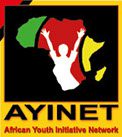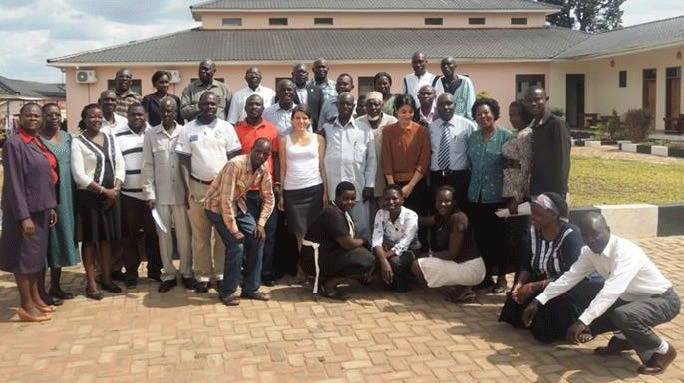International Criminal Court
Victims' Voices for Justice

Introduction
When victims and survivors become aware of discussions about the war, like the debate taking place in light of the recent arrest and upcoming trial of Lord’s Resistance Army (LRA) commander Dominic Ongwen, terrible days emerge from memory into present consciousness.
“As survivors of the Barlonyo Massacre we know that Ongwen and his LRA group deliberately committed atrocities, they knew that they were killing people who did nothing against them. Politicians, religious leaders and academia can say all try to justify Ongwen’s innocence, but it is us, the victims of Barlonyo, who are the right people to express our feelings.
We are not waiting for those well-educated persons, those fortunate people who spent years in law school, to come and tell us, the people of Barlonyo, who spent years in the IDP camps, that Ongwen is innocent. It hurts us to hear people saying that he deserves amnesty. We are ready to testify, and hope that the ICC will not make the mistake to ignore Barlonyo. We have the mass graves here, a monument, and so many people from Barlonyo were taken by Ongwen and his LRA rebels. They were never seen again. Where are they? Ongwen must answer and he must be held responsible,” said Moses Ogwang, Chairman of the Barlonyo Memorial, former IDP-camp leader, eye-witness and survivor of the LRA attack in 2004 that killed over 300 people within two hours.
The years between the start of the LRA war and the eventual involvement of the international community, as well as the subsequent years between the issuing of an arrest warrant against LRA commanders and the eventual arrest of one of them, have been long and painful. Victims have waited for an arrest as a moment of hope, however, their aspirations were immediately discouraged by vocal advocacy of some campaigning for Ongwen to be given amnesty. The worst aspect of this is that the agitators claim to be speaking on behalf of the victims, even asserting that victims and communities from across the Greater North have forgiven the LRA commanders. These claims, no matter how loud, do not represent the views of the majority that continues to aspire for justice.
Victims’ Voices
AYINET has been comprehensively supporting victims for years. In the interest of advocating for justice that is meaningful to the victims as opposed to giving prominence to perpetrators, we responded to the arrest of Dominic Ongwen by launching the platform Victims’ Voices for Justice. It aims to ensure that years of victims’ tormenting struggle for justice are not minimised to ensuring a fair criminal procedure, justice for the perpetrator; it wants to use the opportunity of the trial by the International Criminal Court (ICC) to transform victims’ and survivors’ agony, despair and hopelessness into their strength that will endeavour to bring about justice as they understand and need it.
Justice and Solidarity
The platform brings together victims and survivors so they can forge and strengthen friendships among them without delay and reinforce a wider victims’ identity and unity that they need in their collective struggle for their justice and for peace of the country that is their home. The views expressed in Victims’ Voices for Justice are not the product of a formal programme by any government or international organisation. They are emerging out of necessity, felt by victims and survivors, to let the world know what they think, want and expect from the on-going and future trials against LRA commanders by the ICC as well as from potential domestic alternatives, considered in the framework of the upcoming national Transitional Justice process.
“If anyone listens to those who want Ongwen to receive an amnesty or those who advocate for the ICC to acquit him, then they might as well kill me or the ICC might arrest me instead.
For over 20 years I lived in the Padak IDP-camp, I was camp leader, and I saw all sorts of human suffering caused by the LRA.
I currently lead groups of orphans and widows who were raped and infected with STDs. They are suffering from January to January. None of these religious, political and cultural leaders ever want to help them. I was told that the ICC is the court of last resort and if even the ICC succumbs to the pressure, fails to deliver justice, then the world will be upside down and someone should arrest me instead,” said a bitter and frustrated former camp leader who now coordinates victims’ groups in Amuru District.
Victims’ Voices for Justice builds upon our recent actions and events, carried out in the framework of engaging victims and communities with the ICC. We have, among others, organised and continue to coordinate meetings of victim-centred organisations, victim-communities and local leadership from across the Greater North. Notable and recent examples of our engagement include the participation of AYINET’s Director at the initial appearance of Ongwen in The Hague, the continuous organisation of community-level events and radio talk shows informing victims about latest developments, the gathering of intermediary and partner organisations of the ICC, as well as the visit of the ICC Chief Prosecutor to the affected community in Northern Uganda in early March 2015.
In order for these recent and upcoming engagements to directly benefit victims, we need to strengthen the Victims’ Voices for Justice platform as it is a crucial instrument in achieving victims’ awareness, participation and solidarity.
It is our sincere hope that this medium will allow the world to hear victims’ pleas, learn and grow from their experiences, and, finally, ensure that actions will be guided by genuine victims’ needs.
Our Appeal for Your Support to Victims
We want to reach out to anyone, individual, institution or government, who has an interest in assisting victims. Every day, we are receiving phone calls, radio messages and letters from victims and leaders of LRA-affected communities. Some victims are raising fears and are asking for immediate action, others share stories of great courage and hope and inquire about possibilities for support, most urgently for immediate medical rehabilitation.
In order to maximise the strength of victim-centred organisations and to enable you to understand victims’ needs and priorities best, we have, in addition to launching this platform, compiled a list of victims’ groups and associations as well as a list of local organisations that work in their communities and are in direct contact with the victims. They have been our partners in raising awareness of international criminal justice processes for long and enjoy the trust of the victims.
The struggle for justice will require exceptional organisation, coordination, sacrifice as well as courage and any contribution to the work of local associations and institutions will be greatly appreciated. We are currently exploring possibilities for obtaining support to assist grass-root victims’ groups across the regions. If you wish to contact and support a victim-led group in the Greater North, get in touch; we may be able to offer some suggestions.
As we did before, we will also continue with immediate and direct assistance to victims, which includes:
- The provision of medical and psychosocial rehabilitation to those victims still living with untreated war wounds. AYINET conducts surgeries for mutilations, gun shots, beatings, fistula and other injuries resulting from sexual abuse, among others. So far, we have been able to provide surgical rehabilitation to over 5,000 victims, however, too many victims remain in pain, even though the conflict has ended. Catering for victims’ health needs remains an absolute priority.
- The support of victims’ attendance at and participation in the trial by the ICC of Dominic Ongwen. In addition, we will, funds permitting, stream daily updates of the trial, lobby for greater support of the victims by the ICC and ICC-related institutions, such as the Trust Fund for Victims, conduct continuous outreaches and radio talk shows to raise awareness of the trial and victims’ related views and priorities, and publish materials that can reach the wider international public.
- Looking beyond the ICC – the use of the Victims’ Voices for Justice platform as a tool that allows victims to invigorate and shape domestic Transitional Justice processes, such as a dialogue on accountability, a regional, truth telling and national peace as well as reconciliation process and a timely reparations programme.
Conclusion
The journey up to now has been full of thorns and the road ahead is not easy. As we all learn about victims’ views and needs, let’s maintain our efforts until every victim and survivor can live a life in dignity and free of pain.
There are many small-scale victims’ groups and associations as well as local victim-centred non-governmental organisations that are in need of funds to operate. However, most of these groups are based deep in their communities and lack the capacity to write grant proposals or engage in other activities that would generate individual or institutional support for them. Their cause, however, is not only worthy – it is urgent.
We, friends and supporters of the victims’ cause from across the world, need to stand in solidarity with victims. With this platform, we’d like to create an interaction between international and local, online and offline discussions, in order to achieve greater understanding and, ultimately, support for long-term post-conflict recovery.
We invite you to become involved and share your views, information or questions. We invite you to become a stakeholder in Uganda’s peace!
Follow the discussion on #VictimsVoicesforJustice, share your views on the Facebook page and stay tuned for our monthly digest and specials covering the discussion!


